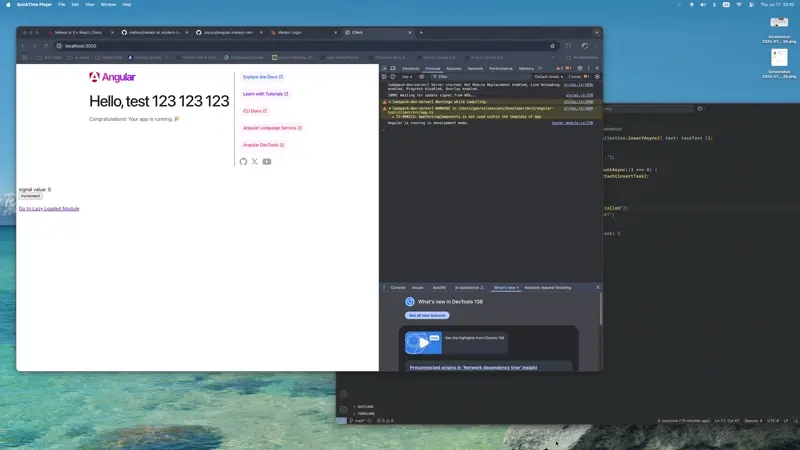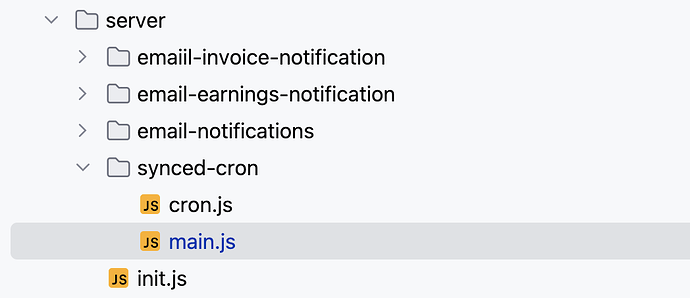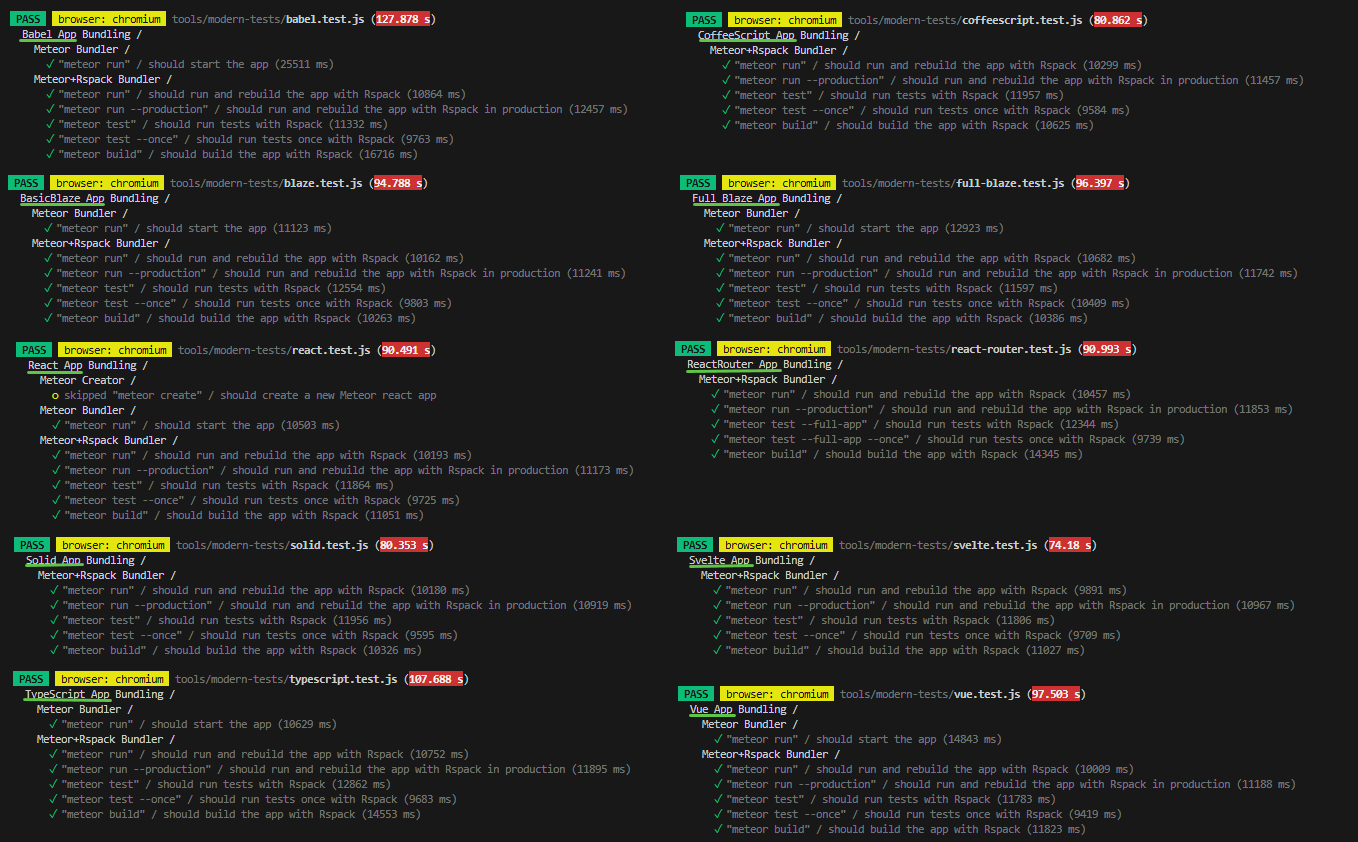It doesn’t act as a loader or plugin for rspack.config.js and instead uses its own config approach, similar to what we plan for Meteor, so I’m not sure how it would fit.
From what I understand, it’s just a wrapper, so it returns a compatible RsPackOptions configuration at runtime. This is how an output would look like: Untitled (ri3sgor0) - PasteCode.io
Could you share a small Angular app repo that uses Rspack?
I’ve created a github repository with a working example using angular 20 and the latest version of rspack and @nx/angular-rspack. GitHub - Joyzyy/angular-rspack-test: rspack integration with angular 20
I’ve also tried to implement the angular rs-pack configuration over on the modern-bundler-integration branch, but to no avail. I might be misunderstanding some things about how meteor works internally (since I don’t have that much experience), so i might’ve done something wrong, that being said, these were issues I ran into:
- I’ve manged to compile the angular frontend, deploying it on port
3005, and serving the assets on the publicPath of__rspack__/, so the rspack_server can create the proxy. What i fail to understand is why there is a need for themain-client.dev.jsinside the_rspackfolder since in development we are usingsetMeteorAppCustomScriptUrl(addEnvSuffixToFilename('/__rspack__/main-client.js'));which just uses the proxy? - Also, is it possible to add multiple script tags to the
<body></body>of the generated html by meteor’sstatic-htmlplugin? Since the compilation of the angular frontend generates 6 main files:vendor.js, polyfills.js, main.js, runtime.js, styles.js, styles.csswhich all are needed in the index.html onlocalhost:3000, or can we skip the index.html generated by meteor and use the index.html generated by rspack (but using this option, how would meteor append the needed scripts (like ddp, tracker) to the index.html)?
I’m sorry in advance if some of the question don’t make any sense, didn’t get a chance to get a good look into how meteor works fully.




